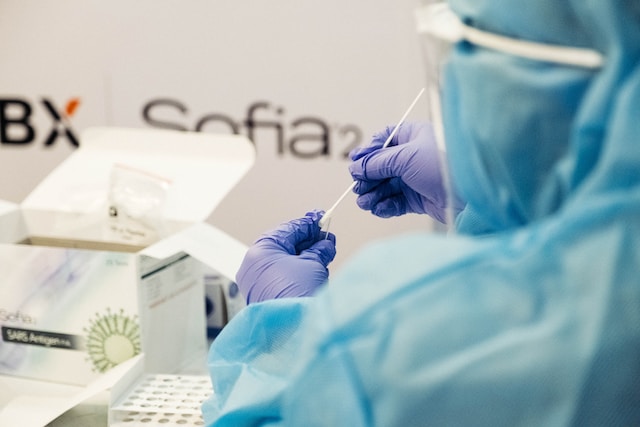As the Covid-19 pandemic continues to impact lives worldwide, an increasing number of individuals are reporting persistent symptoms long after their initial infection has resolved. However, navigating the diagnosis of these lingering symptoms, commonly referred to as Long-Covid, can be a complex and challenging process. Determining whether the symptoms are truly related to Covid-19 or caused by another underlying condition requires careful evaluation, collaboration among healthcare professionals, and a comprehensive understanding of the patient’s medical history.
One of the primary difficulties in diagnosing Long-Covid is the wide range of symptoms that individuals may experience. Fatigue, brain fog, shortness of breath, muscle pain, and cognitive difficulties are among the commonly reported symptoms. However, these symptoms can also be associated with various other medical conditions. Distinguishing between Long-Covid and other potential causes requires a meticulous assessment of the patient’s symptoms, medical history, and relevant laboratory and imaging tests.
Collaboration among healthcare professionals is essential in navigating a complicated diagnosis. In cases where symptoms are persistent and complex, a multidisciplinary approach involving specialists from different fields can provide valuable insights. This collaboration allows for a more comprehensive evaluation and consideration of various potential causes. It also ensures that no stone is left unturned in the pursuit of an accurate diagnosis.
Furthermore, the exclusion of other medical conditions that could be contributing to the symptoms is crucial. This requires ruling out other potential causes through a systematic and thorough examination. Conditions such as autoimmune disorders, hormonal imbalances, neurological conditions, and mental health disorders may present with symptoms similar to Long-Covid. Diagnostic tests, consultations with specialists, and careful consideration of alternative explanations are necessary to avoid misdiagnosis and ensure the appropriate treatment and management of the patient’s condition.
The diagnostic process becomes further complicated by the fact that Long-Covid itself is not yet fully understood. Research is ongoing, and medical knowledge regarding the long-term effects of Covid-19 continues to evolve. As a result, healthcare professionals may face challenges in recognizing and diagnosing Long-Covid. Increased awareness, education, and research efforts are essential to enhance understanding and improve diagnostic accuracy.
Patients themselves play a vital role in the diagnostic process. Clear and open communication about their symptoms, their evolution over time, and any potential triggers or patterns can assist healthcare professionals in making an accurate diagnosis. Keeping a symptom diary and documenting relevant information can help provide valuable insights into the nature and progression of the symptoms, aiding the diagnostic process.
While Long-Covid has gained significant attention, it is essential to acknowledge that not all post-Covid symptoms are attributable to Long-Covid. Some individuals may experience lingering symptoms due to the normal recovery process from a severe illness, while others may have pre-existing conditions that are exacerbated by the infection. Therefore, a careful evaluation of the patient’s medical history is necessary to differentiate between Long-Covid and other factors contributing to their symptoms.
In some cases, a definitive diagnosis may not be possible immediately. This can be frustrating for both patients and healthcare professionals. However, it is important to pursue ongoing monitoring and evaluation, especially when symptoms persist. Regular follow-up appointments and re-evaluation of the patient’s condition can help uncover new information or identify changes that may lead to a more accurate diagnosis over time.
In conclusion, diagnosing Long-Covid or determining the underlying cause of post-Covid symptoms can be a challenging and complex process. Collaboration among healthcare professionals, thorough evaluation of symptoms, consideration of alternative explanations, and patient involvement are all crucial in navigating this complicated diagnosis. As our understanding of Long-Covid continues to evolve, ongoing research and education are vital to improve diagnostic accuracy and ensure appropriate management and support for individuals experiencing the long-term effects of Covid-19.




